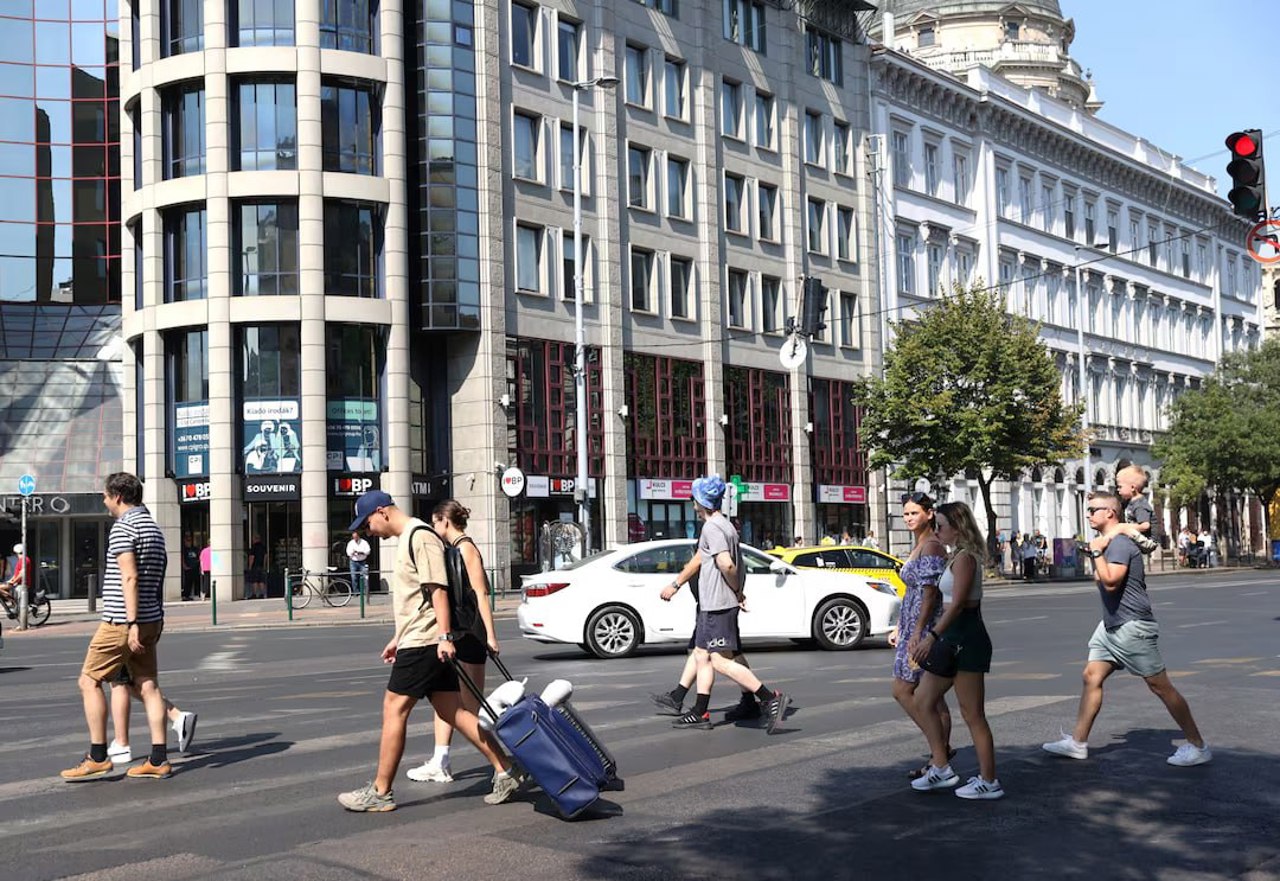Hungary marks 20 years of EU membership and economic growth
While left-wing politicians question the advantages of joining the European Union and spread misinformation among citizens, the economic reality paints a completely different picture.

Member states have enjoyed economic growth, significant foreign investments, and a continuously improving standard of living. This is also the case for Hungary, which in 2024 marked 20 years since joining the community bloc. But how do Hungarian citizens perceive this period? The answer can be found in the report prepared by Moldova 1 journalist, Victoria Pădure.
“This is an extraordinary moment that we are now a part of. Hungary has returned to Europe. It has returned to the values it has called its own for the past thousand years,” declared Peter Medgyessy, ex-Prime Minister of Hungary.
This statement was made in 2004, when thousands of people gathered in Heroes' Square in Budapest to celebrate Hungary’s accession to the community bloc, marking the beginning of a new chapter in the lives of its citizens.
“Hungary's accession to the European Union was a significant moment in the country's history. The 2004 expansion of the European community is considered the largest and the first to include former communist countries. After a complex process of reforms, on May 1, 2004, Hungary, along with nine other states, became a member of the European Union. Accession opened new opportunities for trade and investment in Hungary, contributing to economic development. The EU imposed higher quality of life standards, and significant progress was made in areas such as healthcare, the environment, and education,” reported Victoria Pădure, journalist for Moldova 1.
In the last two decades, Hungary has benefited from almost 50 billion euros through European support under the cohesion policy. This amount represents an average of 5,000 euros for each person in the country. In the last two funding periods, significant resources have been invested in supporting 70,000 businesses and generating 90,000 jobs. The result is a fundamental transformation of Hungary's economy. The per capita GDP has significantly increased, from 63% of the European Union average to 78%. Employment rates have also risen from 57% to 80%, demonstrating the positive impact of these funds on economic development and the improvement of working conditions. People welcome these changes.
“I think it is very good. Security, social benefits for people. Hungary is attractive to companies from other countries to carry out their activities here.”
EU projects have had a significant impact on healthcare in Hungary, contributing to a year-and-a-half increase in life expectancy, according to a study. Hospitals and clinics have been modernised, and screening programs for early disease detection have been implemented. European investments have also modernised vocational training in nine centres where students are learning digital skills. School dropout rates have been reduced through a program that has benefited over 160,000 at-risk students. Additionally, due to accession, new opportunities for study and work have opened up.
“I think it is much better in the European Union; here, I can speak about job opportunities, the ease of travelling. There are projects for which we receive money from the EU. In the educational system, there are more scholarships, and now you have more opportunities to study abroad, in European countries,” said a citizen.
Important cohesion funds have strengthened the country's transport infrastructure. One significant project was the reconstruction of the M3 metro line in Budapest, which transports more than 500,000 passengers daily.
“There are a lot of changes, practically all positive. I think it would take me a few hours to list them. Hungary has received many funds. Many investments have been made here in infrastructure. Free movement, employment. Europe is our culture,” said a Hungarian citizen.
Hungary's development, supported by European partners, will not end here. The European Union will provide Hungary with billions of euros for renewable energy, digitalization, and the improvement of education, as well as to address the teacher shortage.
Translation by Iurie Tataru





